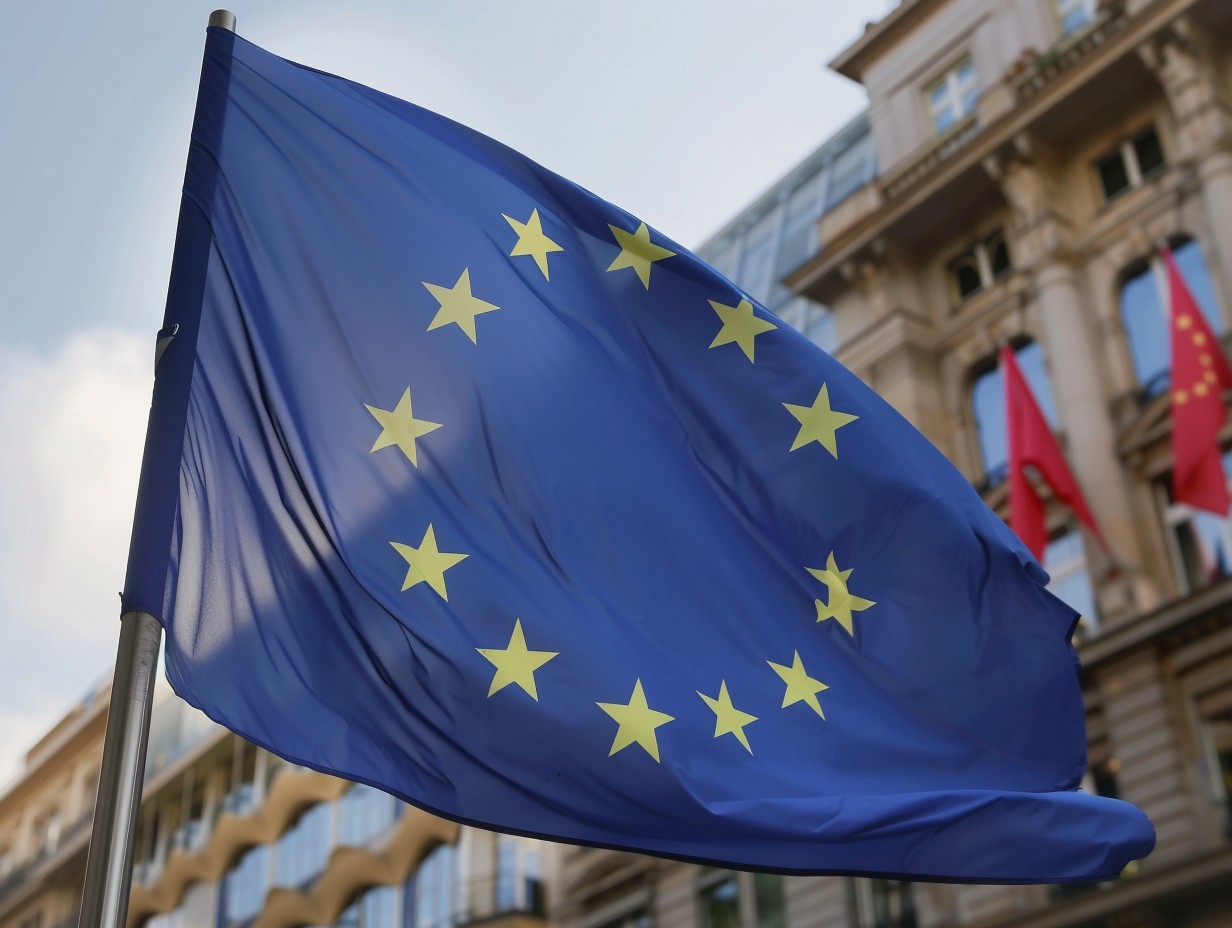France Fines Apple €162 Million For Privacy Violations

Table of Contents
Details of the Apple Privacy Violations in France
The French data protection authority, the CNIL (Commission Nationale de l'Informatique et des Libertés), found Apple guilty of several critical violations of French data protection law, primarily concerning transparency, user control, and cookie practices.
Lack of Transparency and Informed Consent
Apple's data collection practices were deemed insufficiently transparent, failing to obtain explicit and informed consent from users. This violated the principles of the General Data Protection Regulation (GDPR), which applies across the EU, including France.
- Insufficient information provided on data collection purposes: Users were not adequately informed about the precise purposes for which their data was being collected and used.
- Lack of clear explanations of data processing methods: The mechanisms used to process personal data were not clearly explained to users.
- Pre-checked consent boxes: Apple's practices were found to include pre-checked consent boxes, which are considered a violation of GDPR principles requiring freely given consent.
- Violation of French data protection law: The CNIL cited specific articles of the French law (Loi Informatique et Libertés) violated by Apple's actions.
These shortcomings directly contravened French data protection regulations, which mandate transparency and informed consent regarding the collection and use of personal data. The collected data encompassed a range of user information, including browsing history, app usage, and potentially sensitive personal data.
Insufficient User Control Over Data
The CNIL also criticized Apple for unduly restricting users' ability to exercise their rights over their personal data. French law and the GDPR grant individuals specific rights, including the right to access, rectify, erase, and restrict the processing of their data.
- Limited access to collected data: Users faced considerable difficulty accessing the data Apple collected about them.
- Difficult data modification and deletion: The process for modifying or deleting personal data was overly complex and opaque.
- Lack of clear mechanisms for exercising data subject rights: Apple did not provide clear and accessible ways for users to exercise their legal rights regarding their data.
This lack of control over personal data severely undermined users' ability to manage their privacy and directly contravened their rights under French and European data protection law.
Cookie and Tracking Practices
Apple's cookie and tracking policies also came under scrutiny, deemed non-compliant with French regulations. The CNIL found issues with:
- Lack of granular control over cookie preferences: Users lacked sufficient control over which cookies were placed on their devices.
- Insufficient information about tracking mechanisms: The details about the tracking technologies utilized were not transparently disclosed to users.
- Non-compliance with cookie consent requirements: The way Apple handled cookie consent was not in line with legal standards.
These tracking practices raised concerns about the potential for unauthorized data collection and surveillance, leading to the CNIL's enforcement action.
The CNIL's Decision and the €162 Million Fine
The CNIL's decision to impose a €162 million fine on Apple reflects the severity of the violations found.
CNIL's Findings and Rationale
The CNIL's official statement detailed the numerous ways in which Apple had failed to comply with French data protection law. They emphasized the importance of user consent and control and highlighted the significant harm that Apple's practices could have caused to consumer privacy. The CNIL’s press release served as a definitive record of these findings.
Breakdown of the Fine
The €162 million penalty reflects the scale and seriousness of the violations, the number of affected users, and Apple's overall turnover. The CNIL's methodology for calculating the fine took these factors into account, making it one of the largest privacy fines ever imposed on a tech company. This substantial amount emphasizes the seriousness with which the French authorities view data protection compliance.
Apple's Response to the Fine
Apple has responded to the fine, releasing official statements acknowledging the CNIL's decision and committing to addressing the identified shortcomings. While the specifics of their planned changes remain to be seen, their public response suggests a willingness to cooperate with French regulatory bodies and to improve their data handling practices.
Implications for Apple and the Tech Industry
The "Apple privacy fine France" carries significant implications for both Apple and the broader tech industry.
Impact on Apple's Reputation and Brand
The fine undoubtedly impacts Apple's reputation and brand image. The negative publicity surrounding the case could erode consumer trust and potentially affect sales and market share. The company will need a robust public relations strategy to mitigate the long-term damage to its reputation.
Wider Implications for Data Privacy Regulations
This case sets a significant precedent for the interpretation and enforcement of data privacy laws in Europe and beyond. It reinforces the importance of rigorous compliance with data protection regulations and serves as a warning to other tech companies operating in Europe and globally. It is likely to influence future changes in data protection regulations and how they are implemented and enforced.
Conclusion
The €162 million Apple privacy fine France imposed on Apple highlights the growing importance of data protection and the consequences of non-compliance. The CNIL’s decision underscores the need for tech companies to prioritize user privacy and transparency in their data handling practices. The impact of this "Apple privacy fine France" extends far beyond Apple itself, influencing data protection regulations and setting a precedent for the tech industry globally. Stay informed about data privacy regulations and ongoing developments surrounding this case and similar "Apple privacy fine" instances worldwide. Take proactive steps to research and understand your own digital privacy rights and the ways your data is being collected and used.

Featured Posts
-
 Worlds Most Sustainable Corporation Schneider Electric Achieves Another Win
Apr 30, 2025
Worlds Most Sustainable Corporation Schneider Electric Achieves Another Win
Apr 30, 2025 -
 Washington Commanders 2025 Nfl Draft Evaluating Prospects Across All Three Days
Apr 30, 2025
Washington Commanders 2025 Nfl Draft Evaluating Prospects Across All Three Days
Apr 30, 2025 -
 Remy Cointreau Document Amf Cp 2025 E1029253 Decryptage
Apr 30, 2025
Remy Cointreau Document Amf Cp 2025 E1029253 Decryptage
Apr 30, 2025 -
 Ru Pauls Drag Race Season 17 Episode 6 Recap And Predictions
Apr 30, 2025
Ru Pauls Drag Race Season 17 Episode 6 Recap And Predictions
Apr 30, 2025 -
 Our Farm Next Door A Familys Story Of Farming And Community
Apr 30, 2025
Our Farm Next Door A Familys Story Of Farming And Community
Apr 30, 2025
Latest Posts
-
 Shhadt Mylad Bywnsyh Hqayq Ghyr Mtwqet
Apr 30, 2025
Shhadt Mylad Bywnsyh Hqayq Ghyr Mtwqet
Apr 30, 2025 -
 Bionse Uspekh Ili Proval Na Svetovnoto Turne
Apr 30, 2025
Bionse Uspekh Ili Proval Na Svetovnoto Turne
Apr 30, 2025 -
 De Angelina Jolie A Outros Celebridades Que Vieram Ao Brasil Sem Avisar
Apr 30, 2025
De Angelina Jolie A Outros Celebridades Que Vieram Ao Brasil Sem Avisar
Apr 30, 2025 -
 Sr Ykshfh Tarykh Mylad Bywnsyh Tfasyl Mn Shhadt Almylad
Apr 30, 2025
Sr Ykshfh Tarykh Mylad Bywnsyh Tfasyl Mn Shhadt Almylad
Apr 30, 2025 -
 Proval Li E Turneto Na Bionse Analiz Na Uspekha
Apr 30, 2025
Proval Li E Turneto Na Bionse Analiz Na Uspekha
Apr 30, 2025
